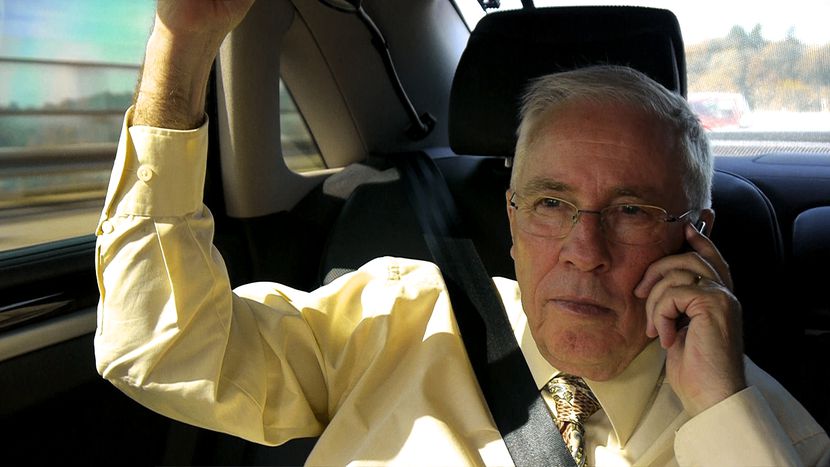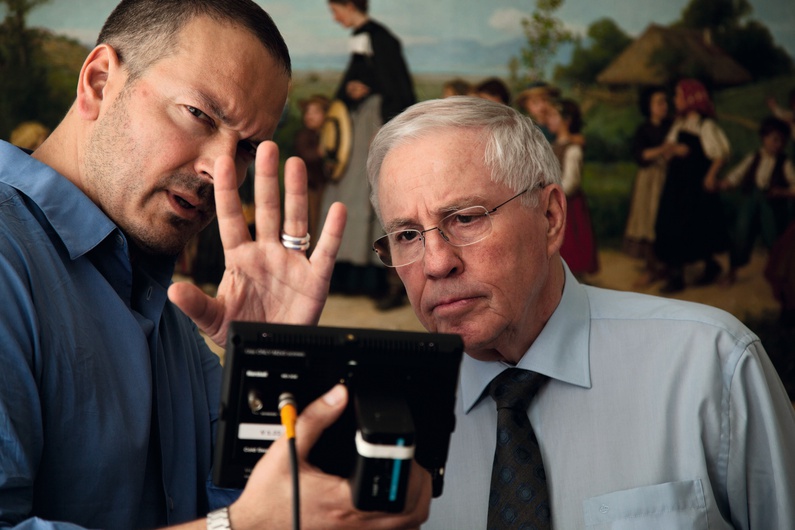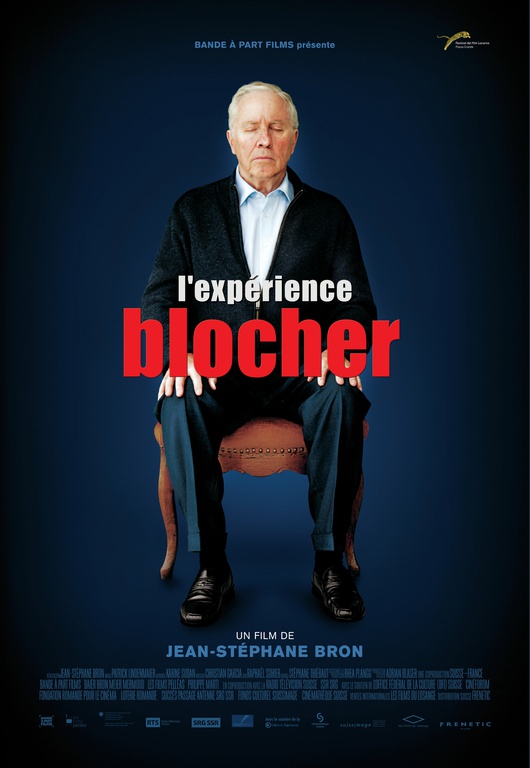
CHRISTOPHE BLOCHER - THE SWISH SWISS
Published on
Translation by:
Garen Gent-RandallAfter directing the imaginary trial of Cleveland versus Wall Street, the Swiss documentary-maker Jean-Stéphane Bron has moved on to examine political life in his own country. With The Blocher Experience (L'Expérience Blocher), he presents us with an intimate portrait of one of the architects of the distrust between Switzerland and the European Union
Since 1992, he has been compared to the Frenchman Jean-Marie le Pen and to the late Austrian Jörg Haider. But Christoph Blocher is more than just a top spokesman for extreme-right European populism. In a few years full of media manipulation, each one dodgier than the last, he has become the very model of success.
"I look at your face and I feel like I'm looking at my country from an entirely new angle," says Bron in voice-over. Paradoxically, in his fight against the EU, Blocher also shows us one of the many faces of Europe. The film takes us on a tour of the often-worrying present day, which seems to be reliving the dark past of 1930s Europe. It's a difficult and controversial comparison, but it feels like it is done in the hope of salvation.
"A CENTRAL FIGURE IN OUR COLLECTIVE UNCONSCIOUS"
Jean-Stéphane Bron brings up the subject by thinking about myths, considering Blocher "a central figure in our collective unconscious". The 1992 referendum on Switzerland's accession to the European Economic Area marked the birth of his political success. Brocher gave over 200 speeches, rallying thousands of Swiss citizens around concern about loss of sovereignty. The unexpected 'no' victory made him a veritable celebrity. In scenes you almost can't believe, people compare him to a medieval king, to Mozart, or even, in one meeting, to God. Nothing is too extravagant.
Jean-Stéphane Bron attempts a double psychoanalysis, focusing on the attraction of this newcomer and his humble beginnings, whilst trying to get inside his head. A simple pastor's son, he studied agriculture. But lack of land forced him out of his first job. The primitive need to defend your homeland is the basis of Blocher's political stance, and the key that links him to the cheering crowds.
A FINANCIAL SHARK
Going back to his roots allows us to dive into his liabilities as a financial shark. Blocher the industrialist threw himself into self-confident capitalism, buying chemical company EMS-Chemie in 1983, and amassing an estimated fortune of $2 billion by 1999 in the process. He was part of the lobbying group which did business with the South African apartheid regime of the 1980s. The same cynical optimism can be found in EMS-Chemie's partnerships with communist China.
Trailer for the Blocher Experience
It is his ability to bridge the huge gap between high financial circles and his popular support base which brings Blocher success at the head of the Swiss People's Party (SPP). Paradoxes were no problem: he defends Swiss salaries against competition from foreign workers, but he is also known as a slave driver and the architect of many a business restructuring, not to mention redundancies. There is an undeniable fascination in watching him successfully use demagoguery to dodge even the most complex allegations.
"MAY 1968 FROM THE OTHER SIDE"
 His masterful ability to play the media allowed him to make the SPP the largest Swiss party, in 1999, before entering government in 2003. He has devoted himself to a media circus which, in his own words, consists of "being increasingly provocative to get society talking about something". Starting with scapegoating.
His masterful ability to play the media allowed him to make the SPP the largest Swiss party, in 1999, before entering government in 2003. He has devoted himself to a media circus which, in his own words, consists of "being increasingly provocative to get society talking about something". Starting with scapegoating.
Xenophobic poster campaigns followed, even going as far as calling foreign criminals the 'black sheep' of the country. It's even more populist than it appears at first glance, given that most immigration in Switzerland is European, from France and Germany. Blocher, who likes to describe himself as having "experienced May 1968 from the other side", stirred up such tensions in Swiss society that he was deselected from the cabinet in 2007, in a historic reaction by the Federal Council.
It turns out that the 2011 elections were a new personal failure. But, as Jean-Stéphane Bron points out, it should not hide the fact that there was a more profound victory in terms of certain ideas becoming more commonplace in Swiss society. The proof is in the success of February's popular initiative "against mass immigration", which Blocher announces at the end of the documentary.
l'EXPERIENCE BLOCHER IS IN CINEMAS FROM 19 fEBRUARY
Translated from Christoph Blocher, suissesse story



